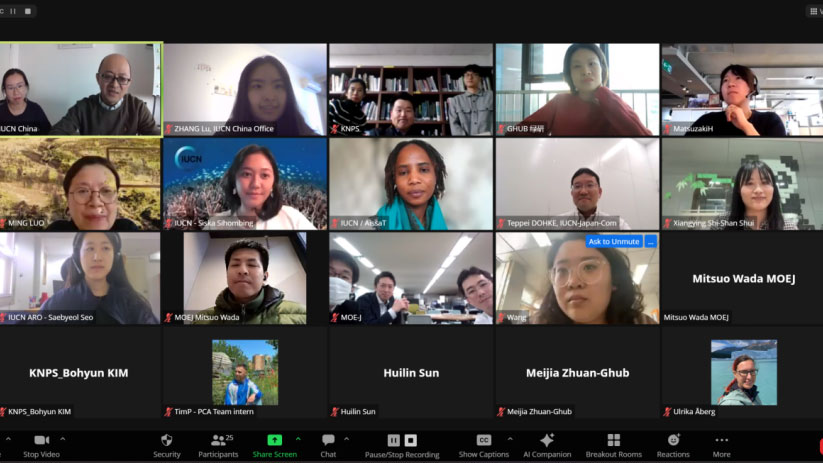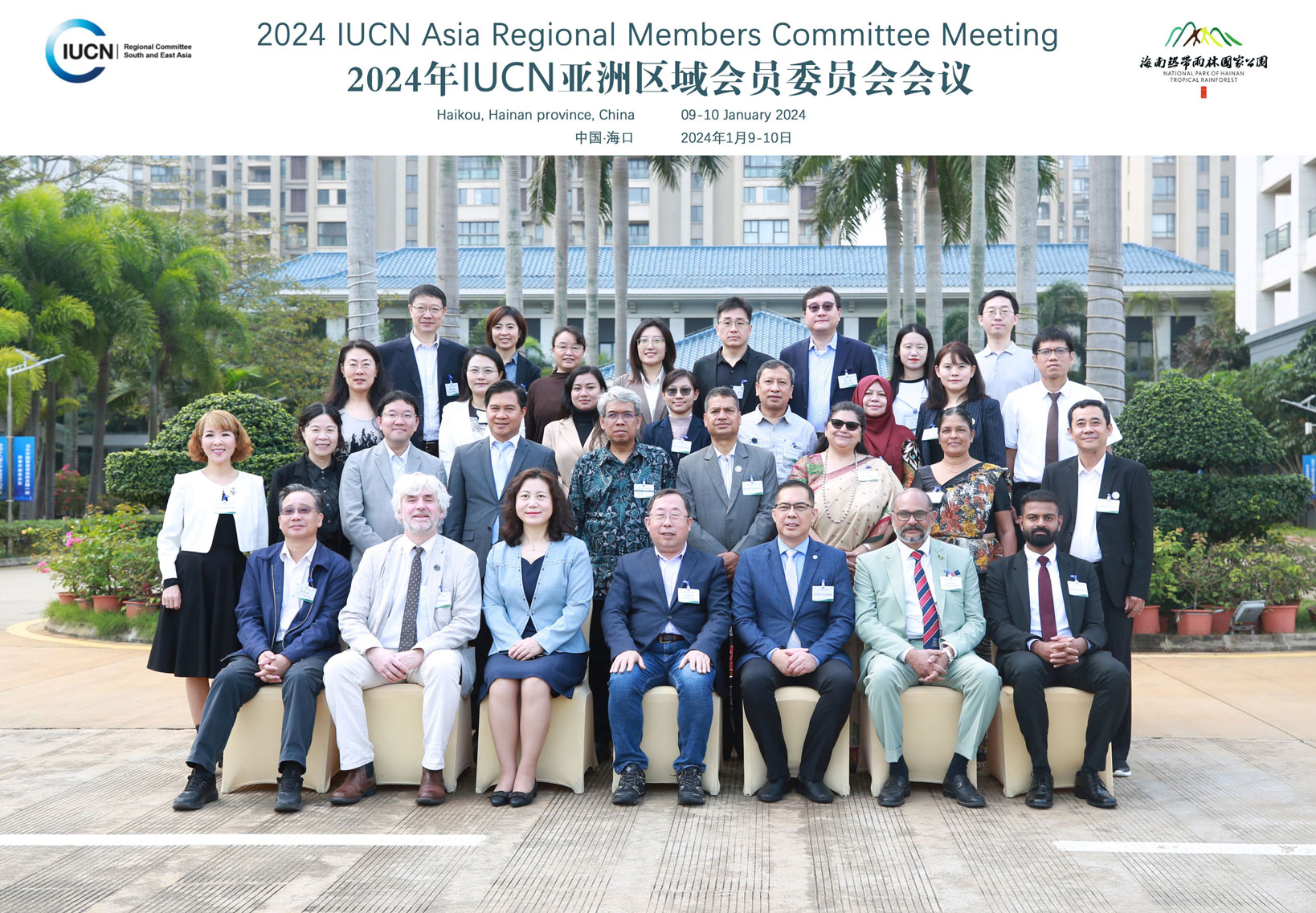Getting ready for scaling up - Key Biodiversity Areas China National Coordination Group established
The Key Biodiversity Areas China National Coordination Group has been formally established at the launch workshop organized by IUCN China on 22nd June 2022.
Identifying important and critical biodiversity areas is the fundamental first step in carrying out natural and ecological conservation and restoration. With an increasing number of different approaches to identifying sites of importance for biodiversity, at the 2004 IUCN World Conservation Congress in Bangkok, Thailand, IUCN Members adopted a resolution, calling for a worldwide consultative process to agree on a methodology to enable countries to identify Key Biodiversity Areas (KBAs), providing a standard approach to identifying these sites of importance for biodiversity.
Subsequently, the IUCN Species Survival Commission and the IUCN World Commission on Protected Areas established a Joint Task Force on Biodiversity and Protected Areas to develop in a highly participatory manner the criteria and methodology for the KBAs. Based on its work, IUCN published A Global Standard for the Identification of Biodiversity Key Areas (KBA Standards) at the 2016 IUCN World Conservation Congress held in Hawai’i, and then the Guidelines for using A Global Standard for the Identification of Biodiversity Key Areas in 2019.
KBAs are sites contributing significantly to the global persistence of biodiversity that are gaining increasing recognition in that effort. At present, over 16,000 KBAs, triggered by various criteria, have been identified worldwide, but some applying legacy criteria.
In China, IUCN has been actively introducing the KBA standard to its Members and partners since 2018, with a goal to contribute to the growing conservation and restoration efforts, and the ecological civilization development of China. A series of activities such as translation of the KBA Standard and Guidelines, and training and workshops in applying the KBA criteria have been delivered.
On 22 June 2022, IUCN China held the online launch workshop of KBA China National Coordination Group (NCG), marking the formal establishment of the KBA China NCG and the official launch of KBA work in China.
At the meeting, Dr. Andrew Plumptre, Head of KBA Secretariat, introduced the global progress of KBA, the KBA standards, KBA identification and nomination process, and provided suggestions for the KBA China NCG.
“Taking advantage of China’s hosting role in the upcoming CBD COP15 this December, I hope the China NCG could make solid, substantial contributions to the Post-2020 Global Biodiversity Framework – especially Target 3 which will likely propose protecting 30% of the planet by 2030. It is important to put this 30% in places that maximise the biodiversity conserved and many of us hope the 30% will target cover of KBAs”, reported Dr. Plumptre.
IUCN China also introduced the progress of KBA identification in China and the preparation work for the China NCG, including the proposed constitution of the NCG and the draft Terms of Reference (TOR). Extensive discussions also took place among the NCG members to review and agree on the TOR of KBA China NCG, and to elect the first executive team including the Chair, Co-Chair, Liaison and Secretary.
“We will focus on further familiarising with the KBA standards, collating and analysing relevant information and results, formulating operational procedures and processes, etc.”, said Dr. Weihua XU, the Chair of the KBA China NCG and professor at the Research Center for Eco-Environmental Sciences of Chinese Academy of Sciences.
Mr. Yan ZHANG, Head of IUCN China noted “IUCN China provides secretariat support for the KBA China NCG, and works closely with SEE Foundation and other IUCN Members to jointly support the development of the KBA China NCG and the KBA work in China.”
Consisting of 24 members from government think tanks, research institutions and universities, NGOs and KBA partners, the KBA China NCG will launch initial KBA identification work as early as possible, including assessing the existing KBAs applying the criteria in the KBA standard, carrying out KBA identification, making proposals to the World Database of KBAs, reviewing proposals from external experts and institutions, among other roles.
For more information, please contact info.China@IUCN.org.





